HOW DID IT GET SO LATE?!
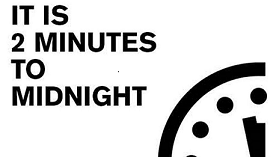
by Dean A. Shreiner
Part 1: Hero of the Cold War
TICK
Growing up during the Cold War we ‘baby boomers’ were inculcated with the idea that our good ol’ US of A was engaged in an heroic struggle for freedom to save the world from the spreading red menace. We were John Wayne and James Bond, heroes for hot dogs, apple pie, and the American Way. It was a comfy warm blanket to snuggle under after practicing to duck beneath our desks at school and helping dad prepare the fallout shelter on weekends. From McCarthy to Cuba, Vietnam to Reagan’s ‘Evil Empire’, visions of the mushroom clouds of Armageddon haunted us.
TOCK
In our early years there was no escaping the tales of valor and victory in WW II. The evil that was Hitler and the fanaticism of the kamikaze pilot played across the screens. But, as the eugenicist Churchill (2) said “History is written by the victors”, and, as we all know, if you want to tell a tale, Hollywood is your man! So let us put together a tale of our history by seeing what made the headlines and what hit the cutting room floor. A movie I’ll call “Hero of the Cold War”.
TICK
Just after WW II, and as a fitting prelude to the Cold War, our hero has his first confrontation with the spreading red menace. The Japanese had occupied Korea during the war, and with the Soviets accepting their defeat in the north and U.S. forces doing the same in the south, Korea was thus divided. But, as we can see from this 1950 headline, that, even when given a square deal, the scourge of communism cannot be trusted and must be contained! This is an exciting start to our film and firmly establishes the role of our hero in the decades to come.
TOCK
That the Korean people, having been under the oppressive thumb of Japanese fascism since 1910, might have had some thoughts and ideas as to how they should be governed or whether or not their country should be split in half, is not of interest to our film. Opinions like the one from Noam Chomsky cited in this article, and all articles like it, should be avoided:
“When US forces entered Korea in 1945, they dispersed the local popular government, consisting primarily of antifascists who resisted the Japanese, and inaugurated a brutal repression, using Japanese fascist police and Koreans who had collaborated with them during the Japanese occupation. About 100,000 people were murdered in South Korea prior to what we call the Korean War, including 30-40,000 killed during the suppression of a peasant revolt in one small region, Cheju Island.” (3)
TICK
After all, our hero has the fate of the world in mind and the people of small countries like Korea just don’t have the scope of understanding, can’t see the big picture. And since we don’t do body counts anymore we should also bypass any fact based reports like this:
“After destroying North Korea’s 78 cities and thousands of her villages, and killing countless numbers of her civilians, [General] LeMay remarked, “Over a period of three years or so we killed off – what – twenty percent of the population.” It is now believed that the population north of the imposed 38th Parallel lost nearly a third its population of 8 – 9 million people during the 37-month long “hot” war, 1950 – 1953, perhaps an unprecedented percentage of mortality suffered by one nation due to the belligerence of another.” (4)
TOCK
Many point to the Truman Doctrine as the start of the Cold War, so let’s get this show started with a bang!(1947 newspaper).
“With the Truman Doctrine, President Harry S. Truman established that the United States would provide political, military and economic assistance to all democratic nations under threat from external or internal authoritarian forces. The Truman Doctrine effectively reoriented U.S. foreign policy, away from its usual stance of withdrawal from regional conflicts not directly involving the United States, to one of possible intervention in far away conflicts.” (5)
Now that is a beautiful setup for our righteous hero! Democracy and freedom vs. authoritarian forces both at home and abroad. Butts to kick aplenty, for who doesn’t need a little more of what we got?
TICK
No good going back any further to see how the doctrine came about, that’s just a bunch of suits debating the issues. The audience wouldn’t understand it anyway! Oh, there may be some intrigue, like people being paid off and such, but we’re looking for headline material. For instance, take the haggling over National Security Council Paper NSC-68, (declassified in ‘75 and written in 1950):
“Initially, a number of U.S. officials strongly opposed NSC-68’s recommendations. Critics such as Secretary of Defense Louis Johnson, and senior diplomats such as Soviet experts and former ambassadors to the Soviet Union George Kennan and Charles Bohlen, argued that the United States already had a substantial military advantage over the Soviet Union. Kennan, in particular, disagreed with Nitze’s assertion that the Soviet Union was bent on achieving domination through force of arms and argued that the United States could contain the Soviet Union through political and economic measures, rather than purely military ones.” (6)
See how this would cast a cloud of doubt that perhaps the spreading red menace wasn’t too menacing, nor had it done much spreading? But such doubt, such talking, making treaties, coming to agreements, economic sanctions, and all that jazz would spell doom at the box office. Our hero needs “authoritarian forces” to be met with force. Something that requires some globe trotting to exotic places, and lots of superior weaponry. Something with the ability to creep across our borders and contaminate our hot dogs and apple pie. “We must remain vigilant!” Now that will sell tickets!
TOCK
We then find our hero struggling with the inner demons under sway of the red menace and planning God knows what subversive evil. So McCarthy takes the front pages for some purging and cleansing. Exciting stuff trying to guess who will get the ax next! (newspaper 1950)
TICK
Stories of lives and careers ruined by trumped up charges and strong arm tactics are well known:
"Elmer Bernstein (composer and conductor), Charlie Chaplin (actor), W.E.B. DuBois (civil rights activist and author), Edward G. Robinson (actor), Orson Welles (actor, author and director), Paul Robeson (actor, athlete, singer, author, political and civil rights activist), J. Robert Oppenheimer (physicist, "father of the atomic bomb”), Clifford Odets (author), Zero Mostel (actor), Arthur Miller (playwright and essayist) Burgess Meredith (actor), Langston Hughes (author), Lillian Hellman (playwright), Dashiell Hammett (author), Lee Grant (actress)", and many more.
But the list is not necessary to the plot. That our hero becomes an icon of strength and purity in readiness to venture forth for justice is what’s needed to capture hearts.
TOCK
In 1962 our hero discovered that Cuba was building bases for Khrushchev’s missiles. The godless commies were conspiring against us! Time for the newly elected JFK to take action, and he issued a public warning to cease and desist. But the devils continued construction and so Kennedy huddled up with his advisers to hatch a plan. They decided to set up a naval ‘quarantine’ of Cuba, which essentially meant a blockade, but, since a blockade was an act of aggression, they cleverly renamed it a quarantine. A smart move all around as it suggests they were isolating a disease which was spreading, the disease of communism! Kennedy then sent a letter to Khrushchev demanding that he back off on the bases and recall his bombs. And then turned to the cameras to address a rapt nation:
“The tone of the President’s remarks was stern, and the message unmistakable and evocative of the Monroe Doctrine: “It shall be the policy of this nation to regard any nuclear missile launched from Cuba against any nation in the Western Hemisphere as an attack by the Soviet Union on the United States, requiring a full retaliatory response upon the Soviet Union.” The Joint Chiefs of Staff announced a military readiness status of DEFCON 3 as U.S. naval forces began implementation of the quarantine and plans accelerated for a military strike on Cuba.” (7)
But Khrushchev wasn’t totally buying the quarantine gambit, our hero went to DEFCON 2, and things came to a stalemate. The pregnant pause, a deafening silence, what would happen? A deal was offered, and then another, and finally the good guys claimed victory. Our hero had faced down the enemy and Khrushchev had to take his toys and slink back in defeat!
TICK
Well, not defeat entirely since the deal was that we were supposed to stop taking pot shots (like that Bay of Pigs thing) at Castro and remove those nukes in Turkey that we had pointed at Moscow. But we were going to remove those nukes, or Moscow, one or the other, soon anyway. And as far as Cuba goes, well, when the cat’s away… Also, let’s leave out any mention of the ‘missile gap’ that Kennedy campaigned on since we had roughly nine times as many missiles as Khrushchev did, which doesn’t do much for the ‘Russian threat’ dynamic. So none of that needs to be muddling up the script.
TOCK
In Vietnam, Ho Chi Minh’s ‘Viet-Minh’ army had defeated the French in their battle for independence and now faced Ngo Minh Diem’s regime in South Vietnam. Ike had cautioned: “The possible consequences of the loss [of Indochina], are just incalculable to the free world.” (8). Thus was born the falling domino principal or domino theory.
TICK
With France failing to stem the tide of communism in Vietnam, our hero, fresh from victory, leaps across an ocean to come to the rescue of the free world! Slowly at first, as both Eisenhower and Kennedy seemed reluctant to take the full plunge. Then, in 1964, under Johnson, opportunity for full immersion finally presented itself in “The Gulf of Tonkin Incident”. It was now clear that the cavalry was needed to save the day! LBJ had seen enough and assembled the camera crew for a midnight address to the American people:
“In the larger sense, this new act of aggression, aimed directly at our own forces, again brings home to all of us in the United States the importance of the struggle for peace and security in Southeast Asia,”. “The determination of all Americans to carry out our full commitment to the people and to the government of South Vietnam will be redoubled by this outrage.” (9)
TOCK
The outcome of this overseas endeavor is murky and the subject of a multitude of books and articles. No need for our film to dwell on that. Also well reported by the many independent journalists like Sy Hersh, (who, some say, may have contributed to the unfavorable outcome) are atrocities like My Lai and the frequent use of napalm. (see “Kill Anything That Moves: The Real American War in Vietnam” by Nick Turse) (10). No need for any of that either! Nor shall we get into the blatant fact that the domino theory was a bunch of horse manure or that the Gulf of Tonkin Incident was a manufactured hoax (11). Let us also not mention that:
“In 1946, Vietnamese president Ho Chi Minh approached U.S. president Harry Truman asking for the U.S.’s help in evicting the French who had occupied Vietnam as a colony since the 1860s. Hadn’t the U.S. itself once fought a war of independence to rid itself of European colonial domination? Indeed, the opening words to the Vietnamese Declaration of Independence were borrowed in sacramental reverence from the American Declaration. They echo to every patriotic American:
“All men are created equal. They are endowed by their Creator with certain unalienable rights, and among these are Life, Liberty, and the pursuit of Happiness.”
But Ho was a communist. So, Truman turned him down and helped the French instead.” (12)
TICK
The ‘70s and ‘80’s presented a succession of headlines too numerous to mention. From Iraq and Iran, to the Contras and Sandinistas, to Watergate, the October Surprise, and crack cocaine at home, it is a complex web, interlinked in ways only a Sherlock Holmes like historian could get interested in. And we’re not making a spy thriller or a Russian novel here, so let’s go for the one with a TV appearance: the Mujahideen of Afghanistan.
TOCK
The Soviets responded to the unstable situation in Afghanistan that the headline alludes to (1979) with what was called an invasion. But our hero, hamstrung by the Vietnam Syndrome, was, sadly, relegated to the sidelines. Along with England and the Saudis, funding, training, and glorifying the heroes, the underdogs, the champions of the resistance to the ‘Evil Empire’, was all that could be done. But a damn good job of it was made as Reagan had them to the White House in a heart stirring tribute to their valor, (13) and that is movie material!
TICK
Kissinger and Zbigniew Brzezinski (Zbig) are two of the bigger spiders weaving the complex web (14), so anything they say or do should be left on the cutting room floor. For instance this particular quote form Zbig proudly flapping his lips:
“Regret what? That secret operation was an excellent idea. It had the effect of drawing the Russians into the Afghan trap and you want me to regret it? The day that the Soviets officially crossed the border, I wrote to President Carter, essentially: “We now have the opportunity of giving to the USSR its Vietnam war." Indeed, for almost 10 years, Moscow had to carry on a war that was unsustainable for the regime, a conflict that bought about the demoralization and finally the breakup of the Soviet empire.” (15)
While this subterfuge of laying a trap by using the Mujahideen to destabilize Afghanistan and draw in the Soviets is proudly proclaimed by some, and may even have some entertainment value, it lies in direct contrast to the gallant onlooker, the loyal supporter persona that we’re going for. We should also leave out the fact that Osama bin Laden, for the first but not last time, was a major player. For the radical Islamists as agent provacatuers is a recurring play that we should endeavor to avoid exposing due to state secrets and such.
Stay tuned for Part 2: “Lazarusky”
Notes:
(1) https://thebulletin.org/doomsday-clock/
(2) http://eugenicsarchive.ca/discover/connections/5233dc9e5c2ec500000000c5
(5) https://history.state.gov/milestones/1945-1952/truman-doctrine
(6) https://history.state.gov/milestones/1945-1952/NSC68
(7) http://www.newworldencyclopedia.org/entry/McCarthyism#Victims_of_McCarthyism
(8) https://history.state.gov/milestones/1961-1968/cuban-missile-crisis
(9) https://history.state.gov/historicaldocuments/frus1952-54v13p1/d716
(10) http://www.newseum.org/2014/08/01/50-years-ago-in-news-history-the-gulf-of-tonkin/
(11) https://www.amazon.com/gp/product/1250045061/ref=ox_sc_act_title_2?smid=ATVPDKIKX0DER&psc=1
(13) https://www.globalresearch.ca/there-is-no-rehabilitating-the-vietnam-war/5610878
(14) =y3f9mlUQz https://www.youtube.com/watch?vJA
(15) http://www.tomdispatch.com/post/176049/tomgram%3A_greg_grandin,_henry_of_arabia
(16) https://dgibbs.faculty.arizona.edu/brzezinski_interview
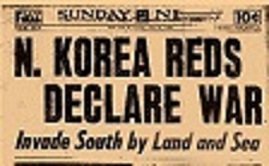
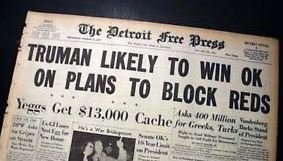
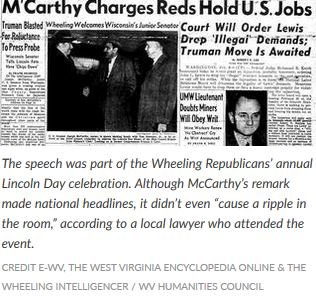
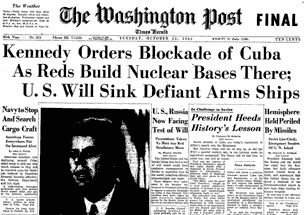
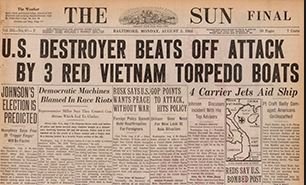
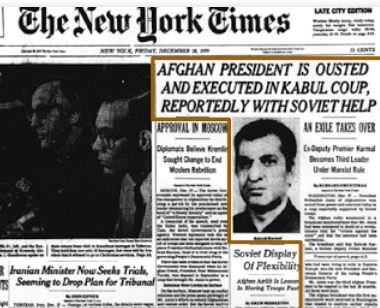
Interesting post. More people need to understand the brutal history of the US and its allies.
Congratulations @dashr! You received a personal award!
You can view your badges on your Steem Board and compare to others on the Steem Ranking
Vote for @Steemitboard as a witness to get one more award and increased upvotes!